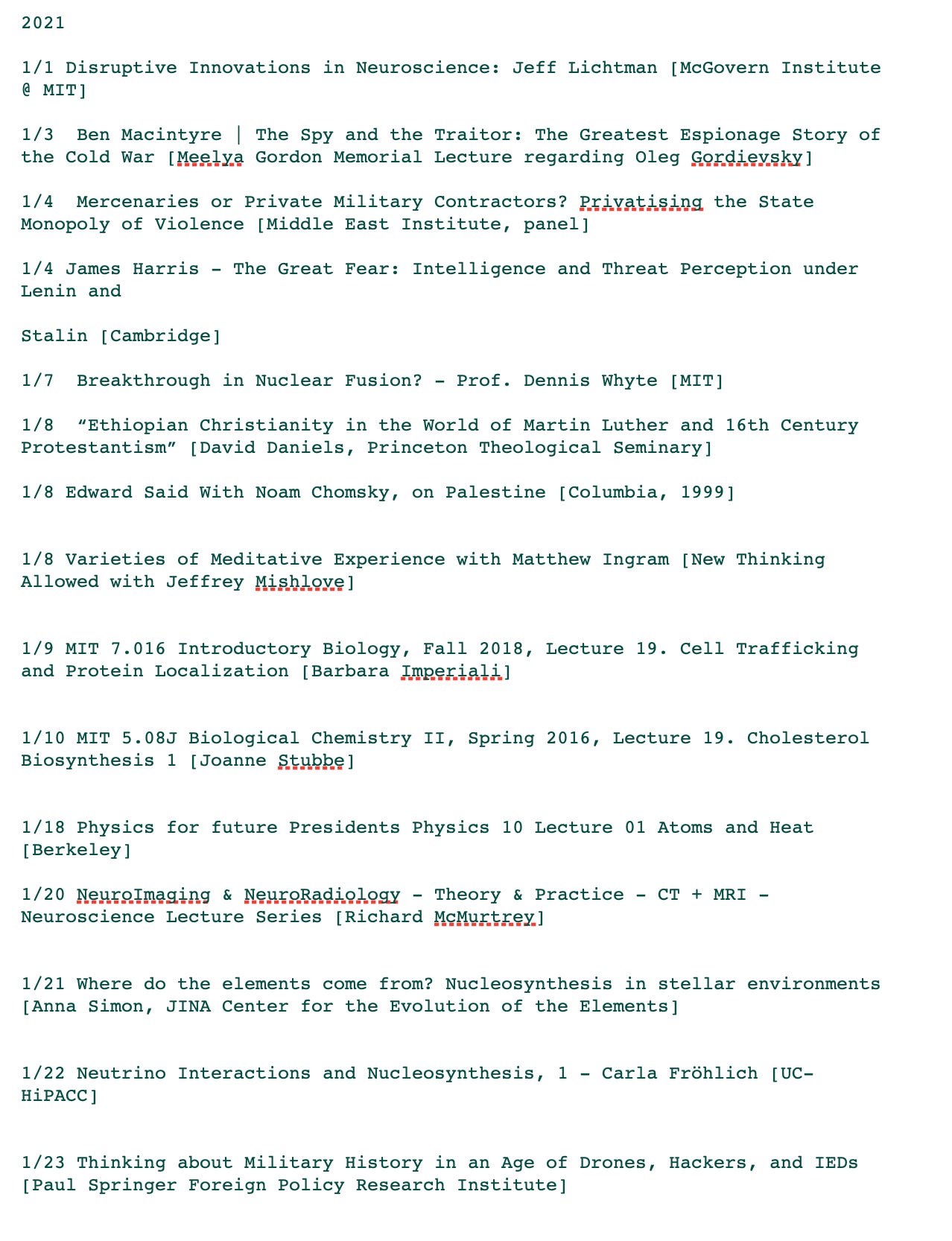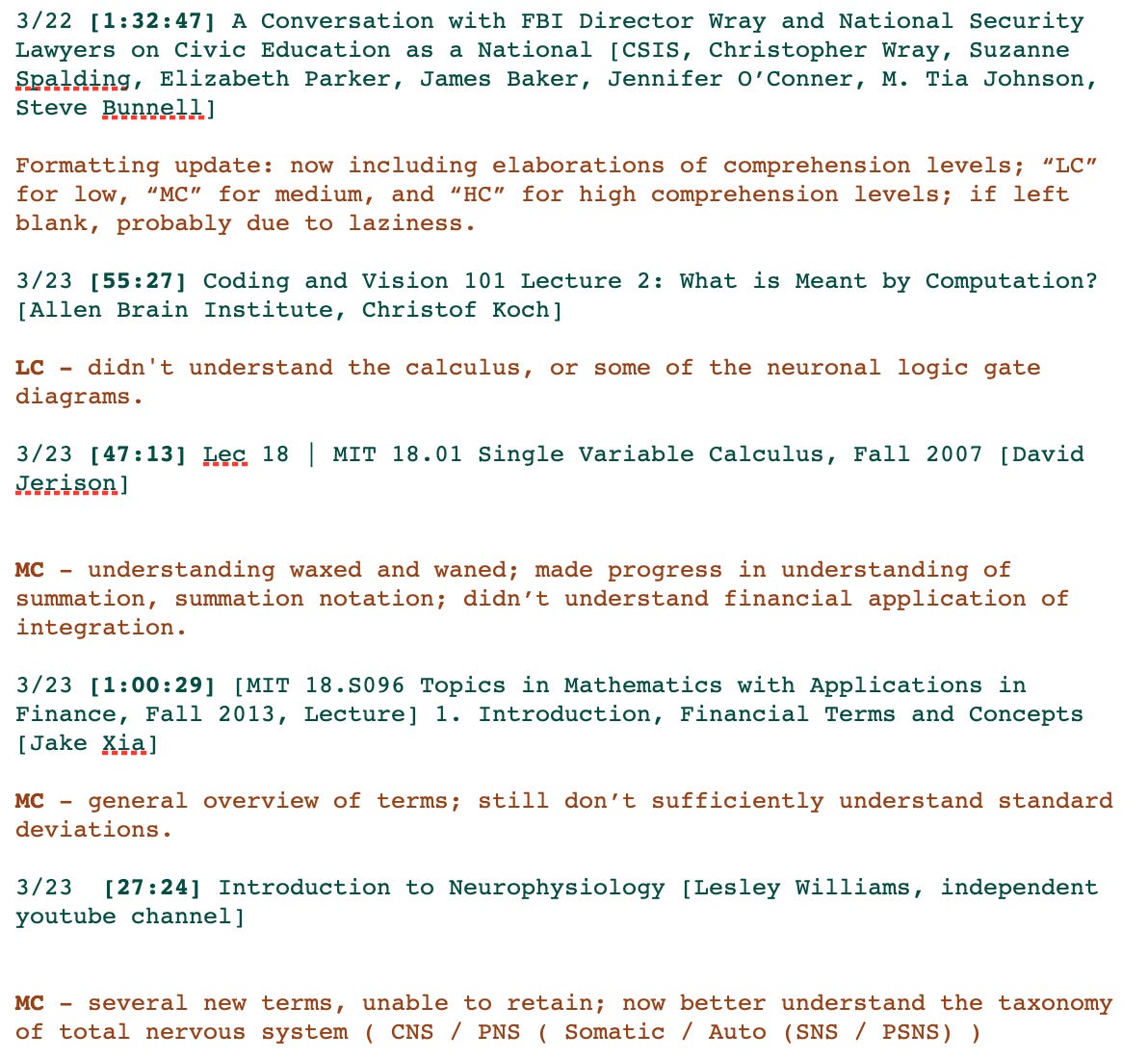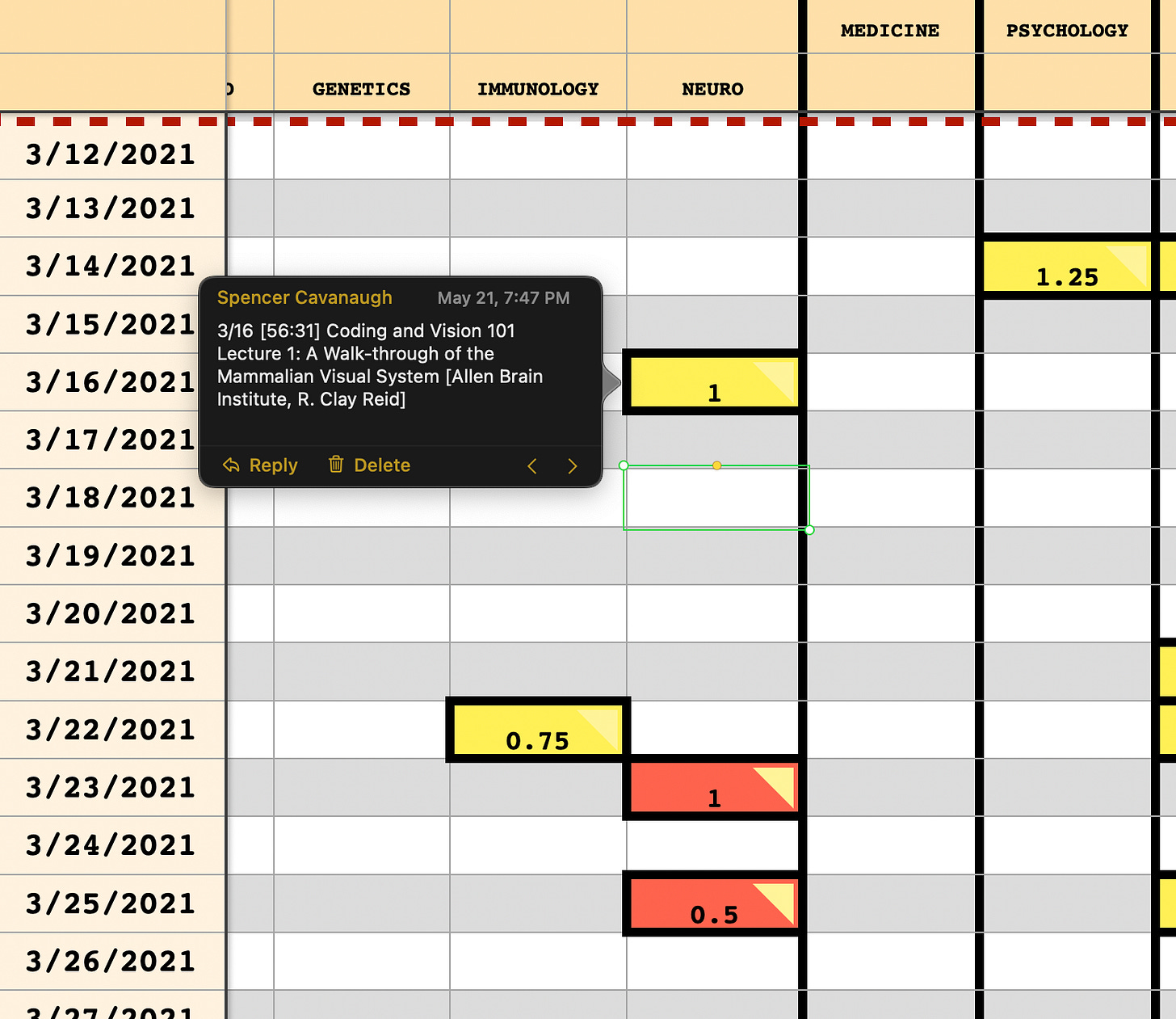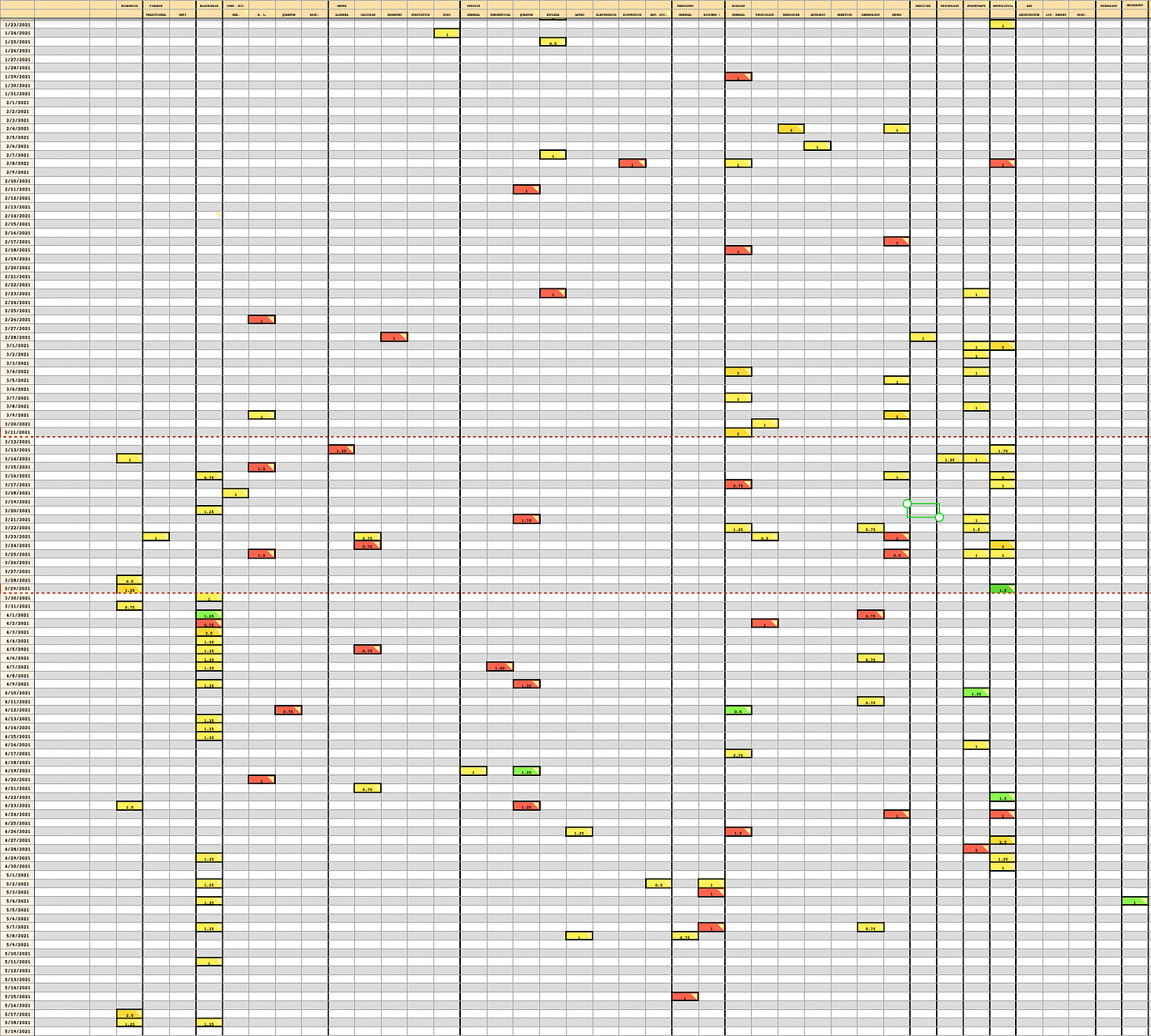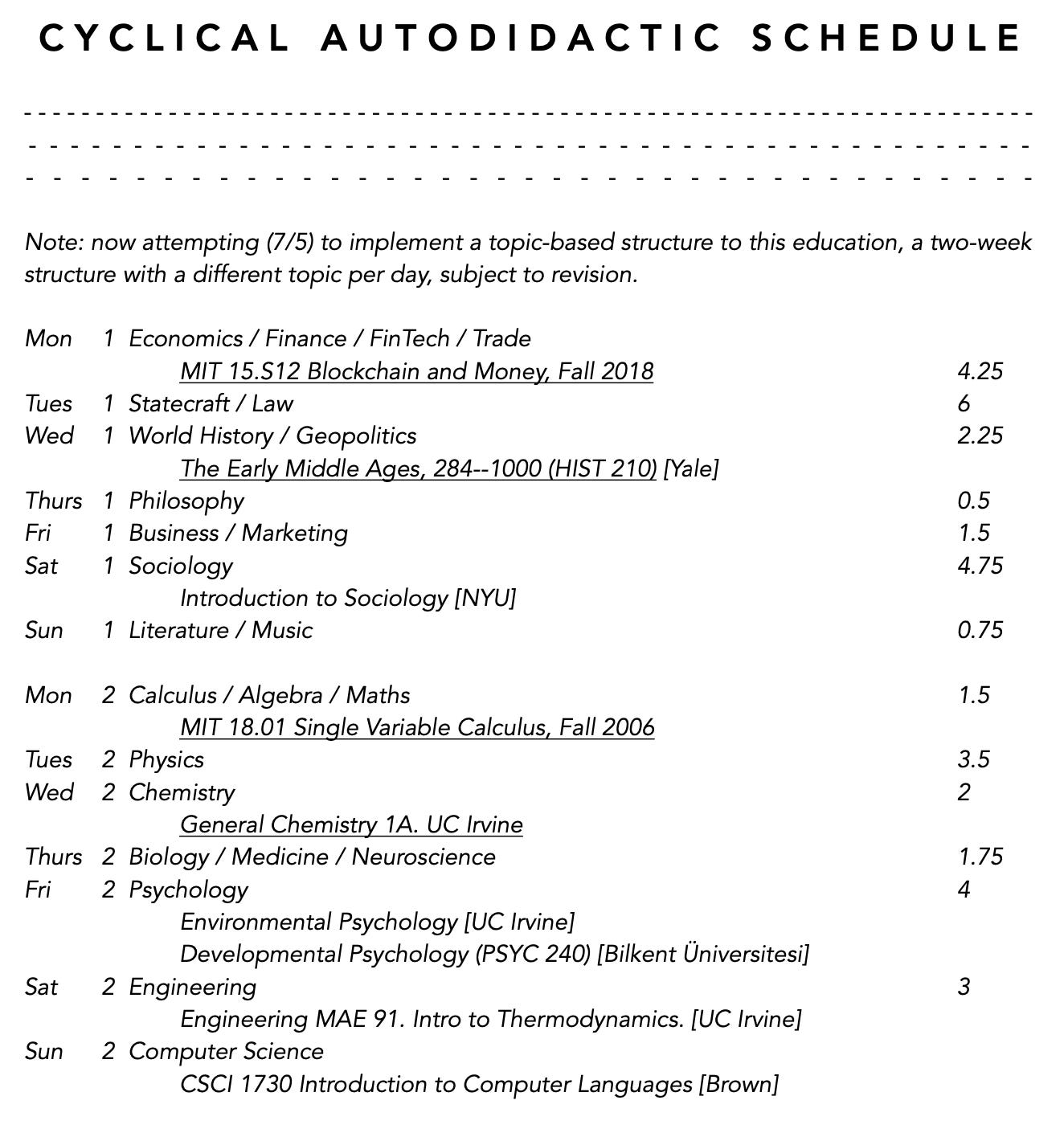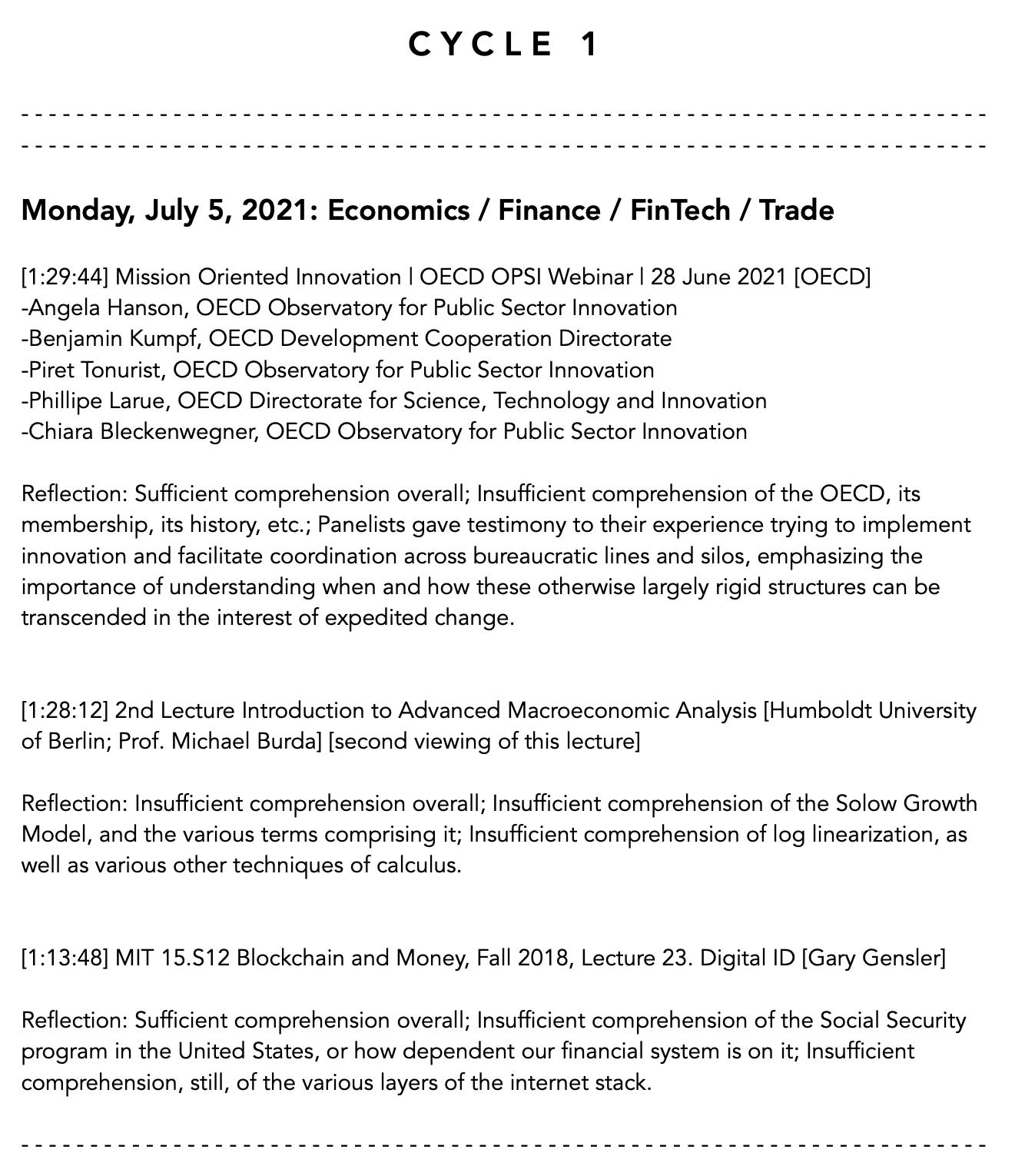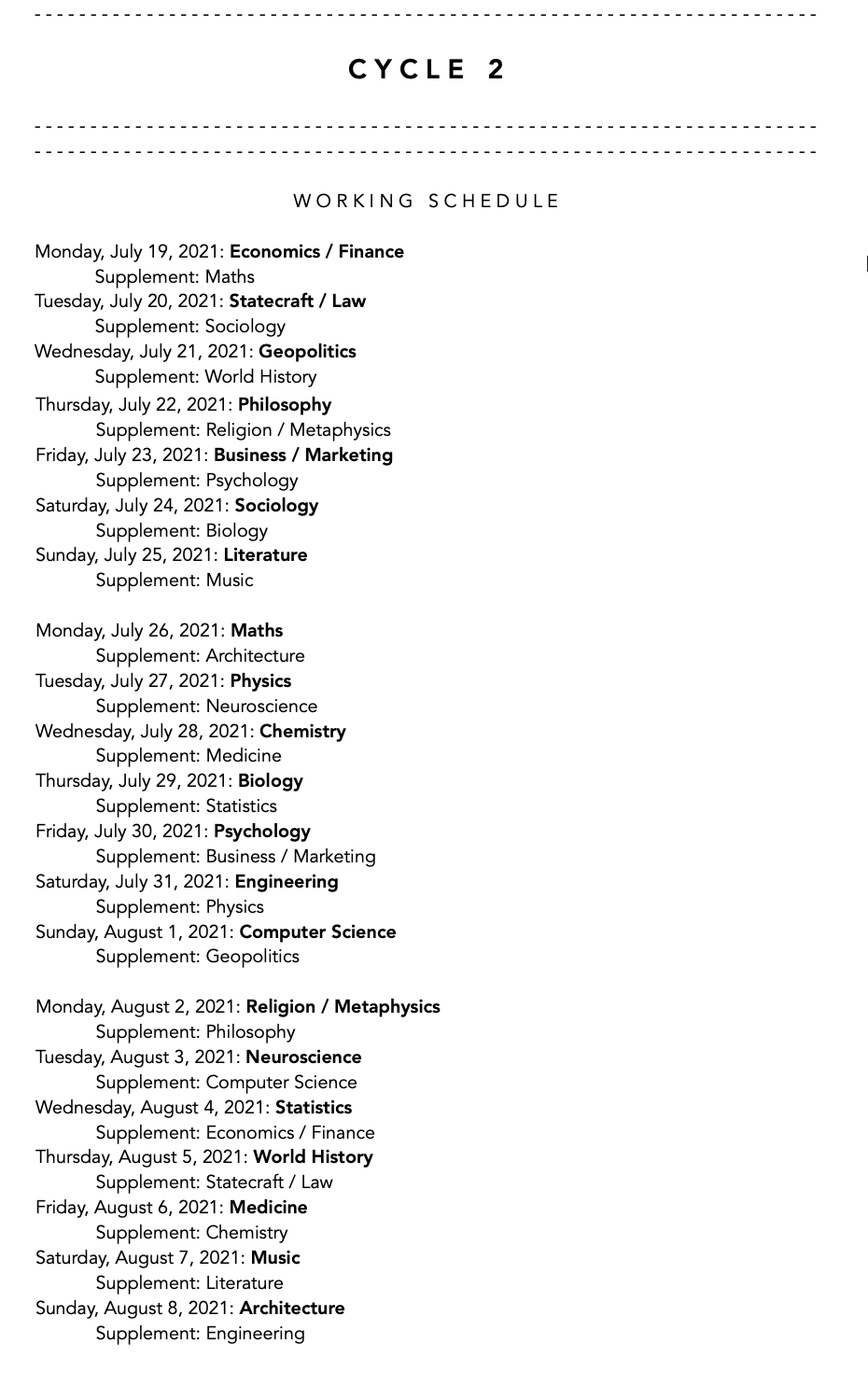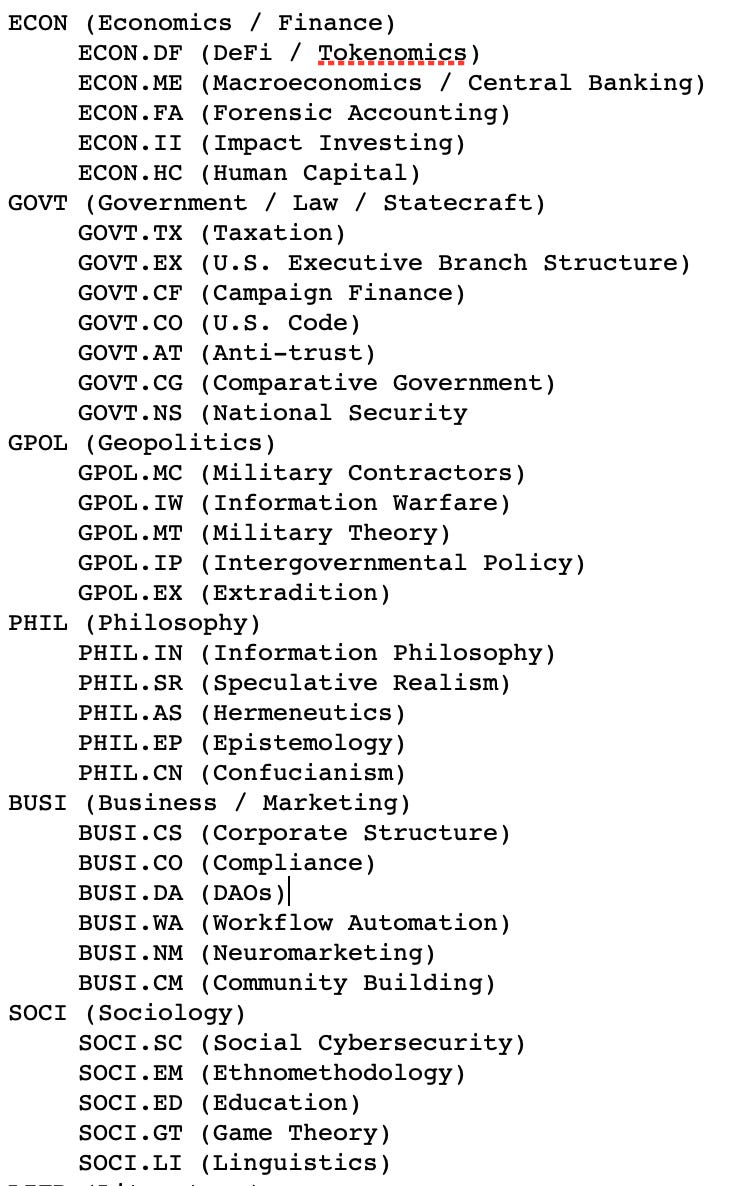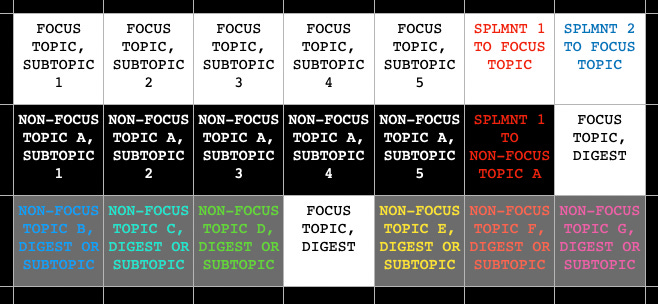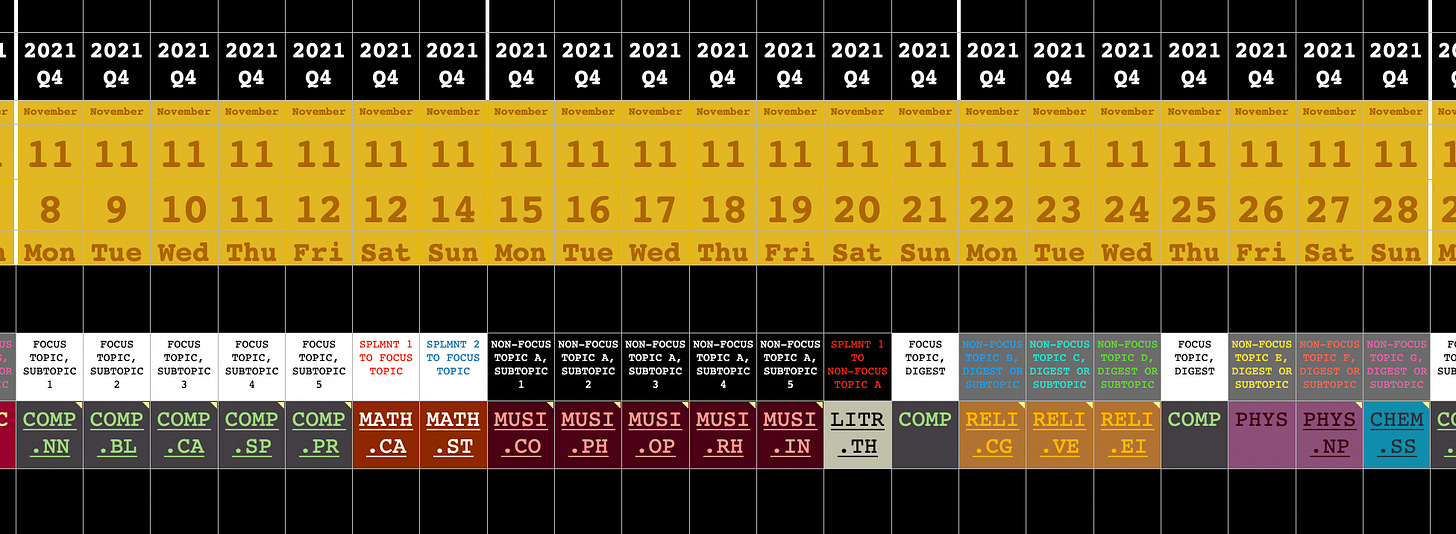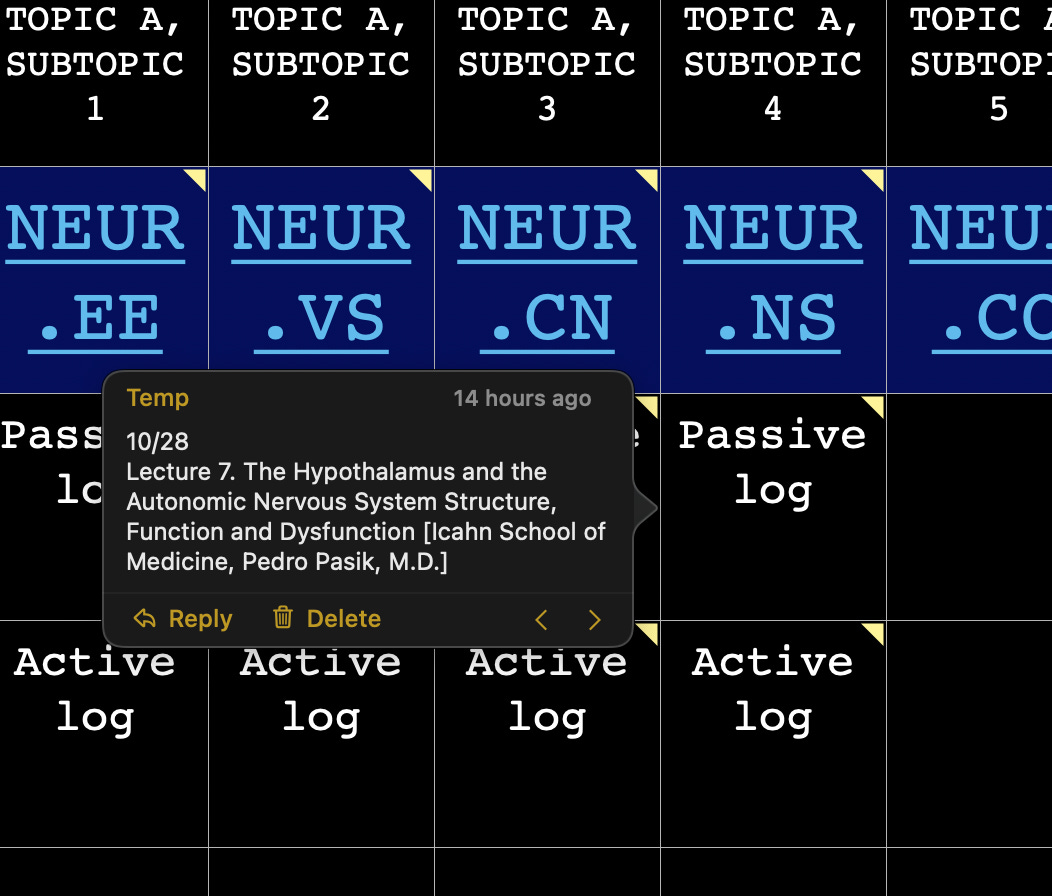MoGenPro Background
An overview of the development of this program so far
Around four years ago I began to realize the value of the virtually endless supply of top-tier educational content freely available on YouTube.
Able to audit hundreds of courses from elite universities across the world, freely and from my room, I gradually upped my intake of this content, keeping a record of what I’ve consumed so far.
From 2018 to 2021, the recordings were as above, with minimal formatting and codification.
I gradually began to structure these recordings in a more organized way, in order to make the process more efficient. I began adding reflection notes, as well as whether or not my comprehension of the material was sufficient, so as to designate areas of confusion.
After this I began using Numbers (Apple’s equivalent to Excel) to record these entries in a way that would allow a higher order overview.
While this allowed for a greater bird’s eye view of the project, it also revealed to me an insufficient fundamental organization. How many topics were there? Did I really need a column for every sub-discipline of biology? How could all of these topics remain in circulation so as to mitigate topical knowledge decay?
So then, halfway into 2021, I established a 14-topic structure, under which, ideally, all of the lectures could be classified. I called this the Cyclical Autodidactic Schedule.
I went through one cycle of this before adding another 7 topics for Cycle 2, as well as a supplemental topic per day, in order to keep everything in a tighter circulation.
It soon became clear that one day per topic was simply insufficient in terms of building up an acumen, and so I began dividing the topics into subtopics. Some of these are somewhat arbitrary placeholders, and will be swapped out.
Needless to say, things are spreading out to be pretty thin. But this isn’t necessarily a problem.
The task here is not to build an expertise around all of these topics, but to develop a generalist method that traverses virtually the entire plane of human study, if even in a shallow manner to start.
One of the things I suspect is that scheduling is critical. Not every topic will be weighted equally, nor every subtopic within each topic, in terms of importance.
Recently I have decided that computer science (COMP) will be the focus topic, with all of the other topics gravitating around it. The newest scheduling reflects this, in an updated 3-week cycle called Modular Generalist Program, the documentation of which being the initial purpose of this newsletter.
The first week will have one COMP subtopic for the first five days (Neural Networks, Blockchain, Cellular Automata, Smart Phone Architecture, and Computer Networking), and the last two days will each be dedicated to a subtopic from a different topic that complements the COMP focus in some way, such as PHYS.CA (Physics: Circuit Analysis) and GPOL.IW (Geopolitics: Information Warfare).
The second week will be the same structure, only not built around the focus topic, COMP, but a different topic every cycle.
The third week will be seven digest topics, one of which being the focus topic, so as to keep as much of the material in active circulation as possible.
This way I can schedule ahead, and get a sense of how actively circulated each topic, and each subtopic, will be.
So this is where I’m at right now, still trying to figure out methods for more active engagement with each topic, such as finding tests online, or engaging in more hands-on applications of knowledge, such as programming a neural network or composing a nocturne.
In over my head, definitely, but such overwhelming complexity is in keeping with our situation in the universe, it seems. Billions of years of thermodynamic evolution, and even that knowledge is predicated on our own apprehension of time, and inherits the partiality thereof.


